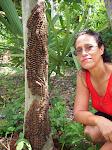Prof: Kids 'sexting' isn't new behavior
OTTAWA (UPI) -- A Canadian social sciences professor says the uproar over youth sending sexually charged text messages, or "sexting," is overblown.
Speaking at the international Congress of the Humanities and Social Sciences this week at Ottawa's Carleton University, Dr. Peter Cumming, an associate professor at York University and coordinator of its Children's Studies Program, said youth are doing what they've done all along using new technology.
Cumming said several cases in the United States have made the news when teenagers sent semi-nude pictures of themselves or others over cell phones.
"It would be very unlikely to see dozens of news stories announcing that some children we caught playing spin-the-bottle, or doctor, or strip poker," he said. "Yet many of the cases brought forward have been on the same level of innocence and experience as those activities."
He said the uproar about sexting is just the modern version of the outrage in the 1950s about the way Elvis Presley moved provocatively on stage.
"The big bad wolf right now is the Internet and cell phones with cameras," he said. "What I would say to anyone is to take a deep breath, think in context, and use common sense."
Copyright 2009 by United Press International
Friday, July 31, 2009
Friday, July 24, 2009
Archaeologists find graveyard of sunken Roman ships

ROME (Reuters) – A team of archaeologists using sonar technology to scan the seabed have discovered a "graveyard" of five pristine ancient Roman shipwrecks off the small Italian island of Ventotene.
The trading vessels, dating from the first century BC to the fifth century AD, lie more than 100 meters underwater and are amongst the deepest wrecks discovered in the Mediterranean in recent years, the researchers said on Thursday.
Part of an archipelago situated halfway between Rome and Naples on Italy's west coast, Ventotene historically served as a place of shelter during rough weather in the Tyrrhenian Sea.
"The ships appear to have been heading for safe anchorage, but they never made it," said Timmy Gambin, head of archaeology for the Aurora Trust (www.auroratrust.com). "So in a relatively small area we have five wrecks...a graveyard of ships."
The vessels were transporting wine from Italy, prized fish sauce from Spain and north Africa, and a mysterious cargo of metal ingots from Italy, possibly to be used in the construction of statues or weaponry.
Gambin said the wrecks revealed a pattern of trade in the empire: at first Rome exported its produce to its expanding provinces, but gradually it began to import from them more and more of the things it once produced.
In Roman times Ventotene, known as Pandataria, was used to exile disgraced Roman noblewomen. The Emperor Augustus sent his daughter Julia there because of her adultery. During the 20th century, Italian dictator Benito Mussolini used the remote island as a prison for political opponents.
Images of the wrecks show their crustacean-clad cargoes spilling onto the seafloor, after marine worms ate away the wooden hull of the vessels.
Due to their depth, the ships have lain untouched for hundreds of years but Gambin said the increasing popularity of deep water diving posed a threat to the Mediterranean's archaeological treasures.
"There is a race against time," he said. "In the next 10 years, there will be an explosion in mixed-gas diving and these sites will be accessible to ordinary treasure hunters."
(Reporting by Daniel Flynn; Editing by Jon Boyle
Labels:
Abel,
Aurora,
Belize,
Brenda,
Corozal,
Desestress,
Ms B,
PrehiSPAnic,
Yo Puedo,
Ysaguirre
Tuesday, July 21, 2009
A Tale of Two Kellys
ONE FOR THE FAIRY TALES
Man and woman with same name met through Facebook, getting married
By ADAM KUPERSTEIN AND BRIAN HAMACHER
Updated 1:42 PM EDT, Mon, Jul 20, 2009
It's been a whirlwind romance for the guy and gal who share the same name, and it all started with an innocent Facebook message.
"She started off 'Hey, I saw we have the same name,and I thought it was kind of cool, Just wanted to say hi I guess. LOL,'" the male Kelly said.
Kelly the female, from Coral Springs, was curious to see profiles of people with the same name when she happened across Kelly the male in Lubbock, Texas.
"I searched my own name and he's the only one who came up and actually in the picture he didn't have a shirt on and I was like oh he's cute," said the female Kelly.
Three weeks later, male kelly flew to South Florida to meet female Kelly, and they hit it off immediately.
And now in just three months, the Hildebrandts will officially be married.
"We get a couple of the same reactions, usually it's like 'whoa, that's so awesome and totally different,'" said female Kelly, 20.
Male Kelly, 24, has moved down to Florida and plans on working at the new branch for his company, Primerica Financial. Female Kelly is finishing up her studies at Palm Beach Community College.
The wedding will be at Lighthouse Point Yacht Club in October, a quick turnaround -- just eight months after the two first met -- though male Kelly has no reservations.
"I felt like there was a good possibility that before I ever came out to meet her in person, that this could be the girl I'm gonna marry," he said.
The marriage won't be without problems. In fact, one problem has already presented itself before the two have even stepped foot on the altar.
"He's even already got some mail coming in, and we have to open everything, because we don't know whose mail is whose," said female Kelly.
Man and woman with same name met through Facebook, getting married
By ADAM KUPERSTEIN AND BRIAN HAMACHER
Updated 1:42 PM EDT, Mon, Jul 20, 2009
It's been a whirlwind romance for the guy and gal who share the same name, and it all started with an innocent Facebook message.
"She started off 'Hey, I saw we have the same name,and I thought it was kind of cool, Just wanted to say hi I guess. LOL,'" the male Kelly said.
Kelly the female, from Coral Springs, was curious to see profiles of people with the same name when she happened across Kelly the male in Lubbock, Texas.
"I searched my own name and he's the only one who came up and actually in the picture he didn't have a shirt on and I was like oh he's cute," said the female Kelly.
Three weeks later, male kelly flew to South Florida to meet female Kelly, and they hit it off immediately.
And now in just three months, the Hildebrandts will officially be married.
"We get a couple of the same reactions, usually it's like 'whoa, that's so awesome and totally different,'" said female Kelly, 20.
Male Kelly, 24, has moved down to Florida and plans on working at the new branch for his company, Primerica Financial. Female Kelly is finishing up her studies at Palm Beach Community College.
The wedding will be at Lighthouse Point Yacht Club in October, a quick turnaround -- just eight months after the two first met -- though male Kelly has no reservations.
"I felt like there was a good possibility that before I ever came out to meet her in person, that this could be the girl I'm gonna marry," he said.
The marriage won't be without problems. In fact, one problem has already presented itself before the two have even stepped foot on the altar.
"He's even already got some mail coming in, and we have to open everything, because we don't know whose mail is whose," said female Kelly.
Monday, July 6, 2009
WE ARE UNPREPARED FOR A PANDEMIC!!
WASHINGTON (UPI) -- This year's swine flu outbreak refuted many of the predictions about how the next large-scale flu pandemic would originate and spread, experts say.
The world's medical community had based much of their pandemic planning on the 2004 H5N1 "bird flu" outbreak in Southeast Asia, which proved to be a poor model for predicting how the latest novel flu strain, H1N1, would play out, The Washington Post reported Sunday.
In planning to cope with future pandemics, experts after 2004 wrongly assumed it would be an avian flu strain. They also assumed that, like H5N1, it would be deadly in 60 percent of those who caught it, instead of the less than 1 percent mortality rate of the H1N1 virus.
"Everyone was thinking about H5N1 and the possibility that we would be in for partial global population collapse," influenza expert David Fedson told the newspaper. "We never addressed severity, because we knew it would be severe. And now we have this funny virus coming out of pigs."
The consequences were that the world was largely unprepared for the swine flu virus that emerged despite five years and hundreds of millions of dollars spent on getting ready, the Post said.
Copyright 2009 by United Press International
The world's medical community had based much of their pandemic planning on the 2004 H5N1 "bird flu" outbreak in Southeast Asia, which proved to be a poor model for predicting how the latest novel flu strain, H1N1, would play out, The Washington Post reported Sunday.
In planning to cope with future pandemics, experts after 2004 wrongly assumed it would be an avian flu strain. They also assumed that, like H5N1, it would be deadly in 60 percent of those who caught it, instead of the less than 1 percent mortality rate of the H1N1 virus.
"Everyone was thinking about H5N1 and the possibility that we would be in for partial global population collapse," influenza expert David Fedson told the newspaper. "We never addressed severity, because we knew it would be severe. And now we have this funny virus coming out of pigs."
The consequences were that the world was largely unprepared for the swine flu virus that emerged despite five years and hundreds of millions of dollars spent on getting ready, the Post said.
Copyright 2009 by United Press International
Subscribe to:
Posts (Atom)








